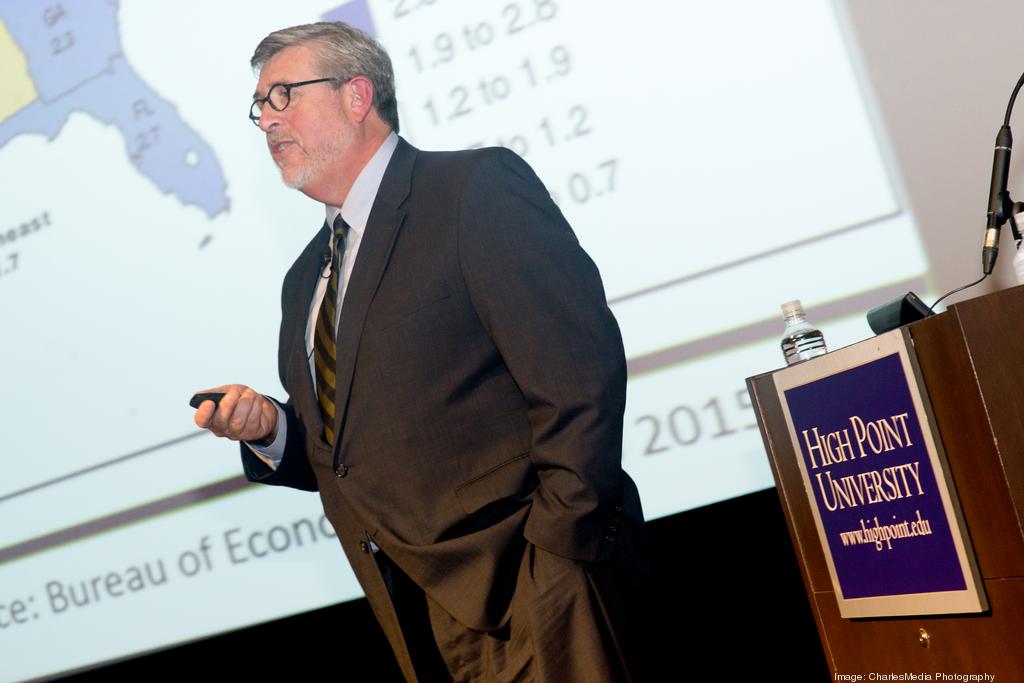Hur NC skulle kunna dra nytta av att distansarbetare flyr från det dyrbara Kalifornien
Publiceringsdatum:Could a proposed bump in California’s already high tax rate push remote workers to states like North Carolina? Experts say yes, and that it could have big implications for economic development.
Already, multiple companies in the Bay Area have shifted operations to the East, citing both the lower cost of living and doing business in cities like Raleigh.
And last week, Democrats in the California state legislature proposed a tax hike there that could leave its highest earners paying a whopping 54 percent in federal and state taxes. Tax hike proposals have been unveiled in New York state, too, as legislators there look to pay for a widening budget deficit.
The tax hikes are coming as workers in those states – from founding executives to computer engineers – suddenly have more choices about where they plug in their laptops.
In light of the pandemic, Google announced its employees would be working remotely into at least next summer. And tech giants Twitter and Facebook have both announced that many of their employees will be working from home permanently.
“There is research suggesting that households – particularly high income households – do compare state tax rates in deciding where to live,” said Mike Walden, economist with North Carolina State University.

Ted Abernathy, managing partner of Economic Leadership N.C., said it’s a migration trend that was happening before Covid-19.
“It’s not just taxes, it’s overall affordability,” he said. “Your taxes are one thing, but your state and local taxes don’t look all that big if you’re paying $5,000 for your 500-square-feet when you could live in a nice house with a good community with great public schools.”
Abernathy said North Carolina’s “selling point” has traditionally been the quality of life and cost of living combination, and that people have been fleeing high cost locations for those kinds of regions for some time.
“I think that’s been accelerated,” he said. “But we won’t know that for a while because of the way the data lags.”
Walden said that with states such as New York and California “suffering more during the pandemic, North Carolina’s economy could receive a boost from interstate relocations.”
Changing the game
An exodus of workers could change the recruitment game in North Carolina, said Chris Chung, CEO of the Economic Development Partnership of North Carolina, the state’s top economic development recruiter.
“We’re used to courting companies,” Chung said. “Whatever marketing dollars we have … we try to position toward companies and corporate decision makers. If you’re now talking about competing for human capital, convincing that software engineer she should move here … you’re talking about a very fundamental shift at how you market a location.”

Economic development is traditionally a “B to B enterprise,” he said.
“If things start to shift and more of the battlefield is more in the realm of attracting the talent and their earning potential, then it becomes a B to C enterprise, and that’s a much more expensive marketing proposition.”
And it’s one where local organizations could take the lead, he said. Local and regional groups have already been working to recruit more tech workers, for example, to fill what, until the pandemic, were tightening labor pools. Chung sees that potentially accelerating.
And it’s not just the general workforce. Tax issues could push those higher net-worth individuals to states like North Carolina, too.
An influx of millionaires?
“When you get into that income category, you’re not only talking about corporate executives, business owners … you’re also talking about venture capitalists, and there’s tons of them in Silicon Valley,” Chung said. “If the tax climate becomes punitive for their ability to be profitable, what does that look like?”
Should venture capitalists set up shop in places like Raleigh, that could mean even more of an infusion for the region’s growing startup sector, he said.

Andy Andrews, CEO of Dominion Realty Partners, the firm behind the FNB Tower in downtown Raleigh, said the migration is already happening – even without that accelerated effort. He says that, as developers rethink office projects locally in light of the pandemic, they’re still seeing interest in the Triangle from New Yorkers.
“Right now, the only thing people are considering doing is building apartments because there are still people moving from the north,” he said.
Nicholas Donahue, CEO of San Francisco-based Atmos, said he’s seen an uptick in interest in the Raleigh region from individuals in both California and New York – and that the interest includes top tier executives. Atmos aims to simplify the homebuilding process for those looking to relocate, and its early focus regions have been the Triangle and Charlotte. He says drivers have been both taxes and rent costs.
“Rent is just extremely high [in San Francisco],” he said. “Now they’re able to move wherever they want … and a lot of those people are moving to places like Austin, Raleigh-Durham. … Software engineers that don’t really need to be here are not really seeing the value of why they’re paying $3,000, $4,000 for a one-bedroom apartment.”
Ursprunglig artikelkälla: Triangle Business Journal
